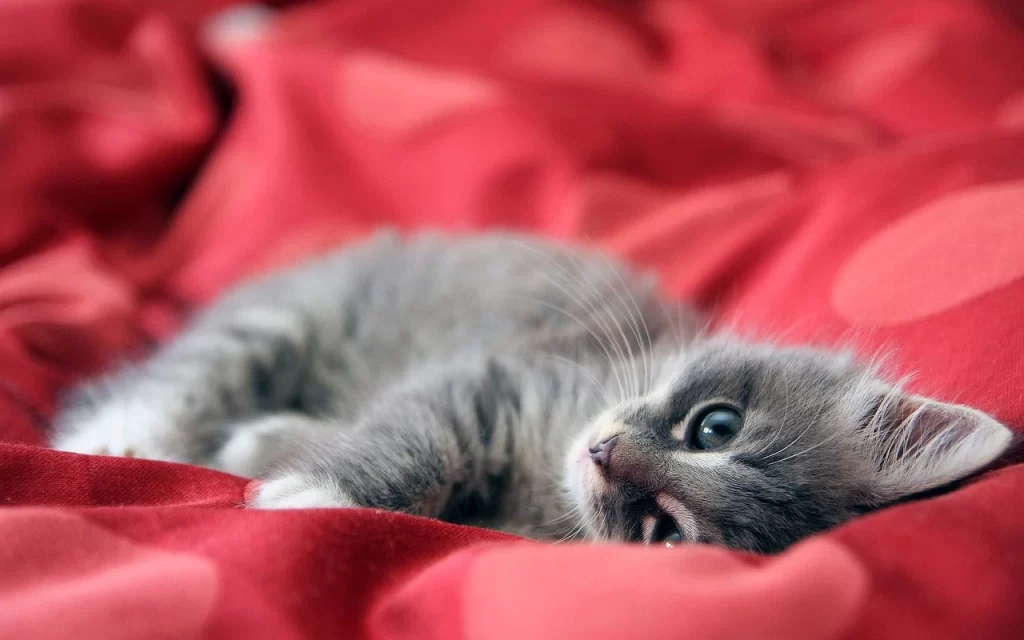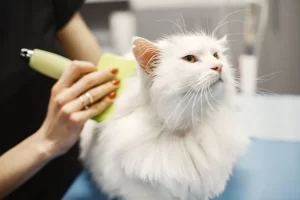Bringing home a new kitten can be an exciting and joyous experience, but it also comes with many responsibilities, including the need to ensure your furry friend stays healthy and happy. As a new kitten owner, it can be overwhelming to know where to begin when it comes to providing the best care for your furry companion. That’s why having a comprehensive kitten health checklist is essential. This checklist will serve as a helpful guide to ensure that you are providing your kitten with the care they need to thrive. In this article, we will discuss the most important items to include on your kitten health checklist and provide useful information on each item to help you keep your kitten healthy and happy for years to come.
- Vaccination schedule: Vaccines are essential for protecting your kitten against common diseases. Your veterinarian will recommend a vaccination schedule based on your kitten’s age and health status. Vaccines typically protect against feline distemper, feline herpesvirus, and calicivirus, among other diseases.
- Parasite prevention: Fleas, ticks, and worms are common parasites that can affect your kitten’s health. Discuss with your veterinarian the appropriate preventive measures to keep your kitten safe. Parasite prevention typically involves the use of topical or oral medication or you can take advantage of these home and natural remedies to get rid of fleas at home.
- Nutrition: A balanced diet is critical to your kitten’s growth and development. Choose a high-quality kitten food that meets their nutritional needs. Kitten food should be formulated with high levels of protein, fat, and essential nutrients such as vitamins and minerals.
- Water consumption: Freshwater should always be available to your kitten to prevent dehydration. Consider using a wide and shallow water dish to make it easier for your kitten to drink water.
- Litter box training: Kittens need to be trained to use the litter box. Place the litter box in a quiet and easily accessible area. Provide one litter box per kitten, plus an additional box for the household.
- Exercise: Encourage your kitten to play and exercise to keep them healthy and prevent obesity. Offer your kitten plenty of toys, such as balls and stuffed animals, and engage in interactive play.
- Socialization: Socialization is essential for your kitten’s emotional well-being. Expose them to a variety of people, sounds, and experiences. Gradually introduce your kitten to new people, pets, and environments to prevent fear and anxiety.
- Grooming: Grooming helps keep your kitten’s coat clean and healthy. Brush them regularly, and give them baths when necessary. Use a brush or comb appropriate for your kitten’s coat type.
- Dental care: Good dental hygiene is essential for your kitten’s health. Brush their teeth regularly with a soft-bristled brush and toothpaste formulated for cats. Dental treats and toys can also help promote good oral health.
- Signs of illness: Knowing the signs of illness can help you catch health issues early. Look out for changes in appetite, energy levels, and behavior. Other signs of illness may include vomiting, diarrhea, coughing, sneezing, and fever.
- Emergency care: It’s important to know what to do in case of a medical emergency. Keep your veterinarian’s contact information readily available. Familiarize yourself with common emergency situations, such as choking, poisoning, and injury.
- Spaying or neutering: Spaying or neutering your kitten helps prevent unwanted litters and can also help prevent health issues later in life. Your veterinarian can recommend the best age for spaying or neutering your kitten.
- Behavioral problems: Kittens can display problem behaviors, such as biting and scratching. Work with your veterinarian to address these behaviors. Positive reinforcement training can help discourage unwanted behaviors.
- Environmental hazards: Keep your kitten safe from household hazards, such as toxic plants and chemicals. Store cleaning products and medications in a secure location, and keep plants out of reach.
- Regular check-ups: Regular check-ups with your veterinarian can help detect health issues early and ensure your kitten’s overall health. Kittens should see a veterinarian every three to four weeks until they reach four months old. Afterward, they should receive annual check-ups. Read more on How often should I take my cat to the vet?
- Microchipping: Microchipping can help reunite you with your kitten if they become lost. The process involves implanting a small chip under your kitten’s skin, which contains a unique identification number that can be scanned by a veterinarian or animal shelter.
- Scratching post: Scratching is a natural behavior for cats, and providing a scratching post can help prevent your kitten from scratching your furniture. Choose a sturdy scratching post made of sisal or carpet and place it in a location your kitten likes to scratch.
- Litter box maintenance: Keeping the litter box clean can help prevent litter box aversion and encourage your kitten to use it. Scoop the litter box at least once a day and change the litter completely once a week.
- Dental cleaning: Professional dental cleaning can help prevent tooth decay and gum disease in your kitten. Discuss with your veterinarian the best time to schedule your kitten’s first dental cleaning.
- Intestinal parasites: Intestinal parasites can cause diarrhea, weight loss, and other health issues in your kitten. Your veterinarian may recommend regular fecal examinations to detect and treat any intestinal parasites.
- Feline leukemia virus: Feline leukemia virus (FeLV) is a viral disease that can affect your kitten’s immune system. Testing for FeLV and vaccinating against it is recommended, especially if your kitten will be living with other cats.
- Feline immunodeficiency virus: Feline immunodeficiency virus (FIV) is a viral disease that affects the immune system of cats. Testing for FIV is recommended, especially if your kitten will be living with other cats.
- Behavioral training: Positive reinforcement training can help prevent unwanted behaviors, such as biting and scratching. Consult with your veterinarian on how to properly train your kitten.
- Identification tags: An identification tag with your contact information can help reunite you with your kitten if they become lost. Consider attaching a tag to your kitten’s collar or harness.
- Emergency preparedness: Prepare an emergency kit for your kitten that includes food, water, medication, and a copy of their medical records. Make sure you have a plan in place in case of an emergency, such as a natural disaster.
Kitten Health Checklist: Timing and Schedule for Key Health Considerations
| Item | Timing/Schedule |
|---|---|
| Vaccinations | Typically, kittens receive a series of vaccinations at 6-8, 12, and 16 weeks |
| Spaying/neutering | Recommended at 6-8 months of age |
| Feeding | Kittens require frequent small meals throughout the day |
| Socialization | Critical socialization period is before 14 weeks of age |
| Regular check-ups | Every 3-4 weeks until 4 months old, then annually thereafter |
| Litter box maintenance | Scoop at least once a day, change litter completely once a week |
| Dental cleaning | First dental cleaning typically between 6-12 months of age |
| Intestinal parasites | Fecal examinations recommended every 6-12 months |
| FeLV testing/vaccination | Testing and vaccination recommended, especially if kitten will be with other cats |
| FIV testing | Testing recommended, especially if kitten will be with other cats |
| Behavioral training | Training should start as early as possible and be consistent |
| Microchipping | Recommended to implant a microchip for identification purposes |
| Flea/tick prevention | Regular preventative measures recommended, such as topical or oral treatments |
| Ear cleaning | Regular ear cleaning recommended, consult with your veterinarian for specifics |
| Eye care | Regular cleaning and check-ups recommended, consult with your veterinarian |
| Nail trimming | Regular trimming recommended, typically every 2-3 weeks |
| Grooming | Regular grooming, such as brushing, recommended for healthy coat |
| Playtime/exercise | Kittens need plenty of playtime and exercise to stay healthy and happy |
| Environmental enrichment | Provide toys, scratching posts, and other enrichments for mental stimulation |
| Emergency preparedness | Keep emergency contact information and supplies on hand in case of emergency |
| Traveling with your kitten | Plan ahead and prepare your kitten for travel to reduce stress |














